2014 Chevrolet Cruze Diesel Vs. 2013 VW Jetta TDI

No longer is the Volkswagen Jetta the only compact sedan in town with a diesel engine. Finally a rival is here in the form of the Chevrolet Cruze Eco Clean Diesel. Neither one is a clear runaway winner; so here’s the nitty gritty about which one is a better buy.
The Weigh-In
When it comes to power, the diesel engine in the Cruze makes 151 horsepower and 264 lb-ft of torque. That’s a lot of twist and isn’t even the peak as an overboost function allows the diesel engine in the Cruze to put out 280 lb-ft for up to 10 seconds. By comparison the VW Jetta TDI’s motor is down 11 hp and 28 lb-ft. So far, so good for the Chevy.
But the story quickly flips around when it comes to transmissions and fuel economy. The VW Jetta’s quick-shifting dual-clutch automatic transmission feels sporty, but abrupt shifts during slower driving leave it feeling unrefined. It’s still better than the lazy-feeling torque converter automatic in the Cruze Diesel, and helps the car get 30 mpg in the city, 42 mpg on the highway, and 34 mpg combined according to official estimates. The Cruze Diesel is rated at 27 mpg in the city and 46 on the highway for a combined 33.
Get the Flash Player to see this player.
Those looking for a lower price of entry to the diesel club will prefer the Jetta. Starting at $23,850 after delivery, our fully-loaded “Premium” model with navigation and a dual-clutch transmission comes to almost $28,000. On the other hand, diesel Cruze starts just under $26,000 and climbs to about $29,000 when generously equipped.
Chalk the drastic difference in base pricing up to Volkswagen offering its base model with a manual transmission. Few drivers are likely to take the stick, but it’s nice to know it’s available.
You’ve probably noticed that both cars are more expensive then the gasoline versions. Diesel engines use a much higher compression ratio than gasoline vehicles. Consequently, manufacturers are forced to use heavier, more expensive components. Those costs are ultimately passed on to whoever buys the car.
Over time, fuel savings can marginalize and even surpass the difference, but it’s a question of how long you’re planning to keep the car. More miles – theoretically – means more money saved.
With that in mind, we planned a route split evenly between city and highway speeds to test the real-world fuel consumption of both cars.
Highway To Hel(ping Save Fuel)
Like the Cruze Eco, the diesel model features the same active grille shutters, trunk-lid spoiler and aerodynamic underbody panels for improved aerodynamics. The Cruze also can also come with blind spot monitoring and a rear-view camera for easier parking.
The Jetta skips aero tricks and extra safety gear. While blind spot monitoring is nice to have, the Jetta turned out to be the winner here with 47 mpg on the highway compared to 39 in the Cruze.
There’s very little to complain about with the cabin quality in either car. The diesel Cruze is only offered in the second-highest trim level within its model range to include leather upholstery and heated front seats. Chevrolet’s MyLink touch screen radio is also standard on all diesel models.
Side-by-side, the Jetta ends up looking plain and conservative. Its cabin manages to hide hard plastic pieces. There isn’t as much equipment in the standard features column, but that ends up lending the cabin a clean look and feel. Especially considering the Cruze comes with real leather, the Jetta’s leatherette seats are a bit of a letdown.
Around-Town Efficiency
Hitting the city route, it’s clear that the Cruze has a few more features in mind for urban drivers. The rear-view camera, parking sensors and cross-traffic alert system are all helpful for parking in tight spaces.
Compare Specs
| Vehicle | 2013 Volkswagen Jetta TDI | Advantage | 2014 Chevrolet Cruze Diesel |
|---|---|---|---|
| Engine | 2.0L Turbo Diesel | - | 2.0L Turbo Diesel |
| Power | 140-hp | Cruze | 151-hp |
| Torque | 236 lbs-ft | Cruze | 264 lbs-ft |
| Transmission | 6-Speed Dual Clutch | Jetta TDI | 6 Speed Auto |
| Fuel Economy | 30 MPG City / 42 MPG Highway | - | 27 MPG City/ 46 MPG Highway |
| As Tested Fuel Economy | 40.5 MPG | Jetta TDI | 37.5 MPG |
| Rear Seat Head Room | 37.1 in | Cruze | 37.9 in |
| Rear Seat Leg Room | 38.1 in | Jetta TDI | 35.4 in |
| Trunk Space | 15.5 cu-ft. | Jetta TDI | 13.3 cu-ft. |
| Starting Price | $23,850 | Jetta TDI | $24,885 |
| As Tested Price | $27,850 | Jetta TDI | $29,230 |
Meanwhile, stop-and-go driving highlights the Jetta’s weaknesses. The transmission is rough in slower moving traffic and the steering also feels too heavy at slower speeds.
Without a doubt, the Cruze is more comfortable in the city and the extra power and torque help it stay in the flow of traffic better. The downside is that it makes more noise than the Jetta. The Chevys low-rolling resistance tires also squealed and chirped often.
Around town, Chevrolet came up the winner with 36 mpg compared to 33 in the Jetta. On average, the Jetta came out ahead with an average 39 mpg to the Cruze with 35.
The Verdict
Choosing the best car here isn’t easy, since it all depends on what kind of driver you are. Those looking at buying a diesel car are likely more concerned with fuel economy and saving money. For that driver, the Jetta is the unbeatable since it’s available at a cheaper price than the Cruze and returns better fuel economy.
However, the Cruze Diesel is a valiant effort by the General since it pairs good fuel economy with high-end, useful features. Take your pick and it’s hard to be upset at the results.
2014 Chevrolet Cruze Diesel, 2013 Volksagen Jetta TDI
LOVE IT
- Excellent Power and Torque
- More Features
- Great Infotainment System
- City MPG
- Quick shifting transmission
- Great highway MPG
- Lower Price
- Clean Interior Design
LEAVE IT
- Almost $30k for a Cruze?
- Subpar Highway MPG
- Loud
- Fewer Features
- Lower Power and Torque
- Bland Looking Exterior

Sami has an unquenchable thirst for car knowledge and has been at AutoGuide for the past six years. He has a degree in journalism and media studies from the University of Guelph-Humber in Toronto and has won multiple journalism awards from the Automotive Journalist Association of Canada. Sami is also on the jury for the World Car Awards.
More by Sami Haj-Assaad



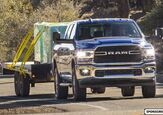


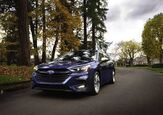







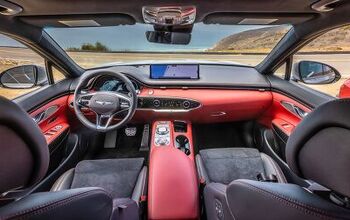
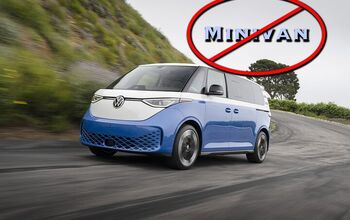
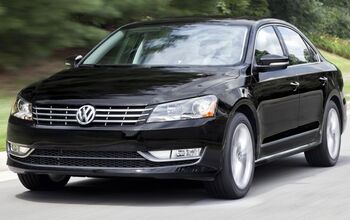
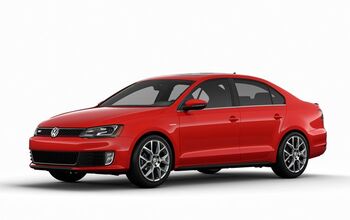
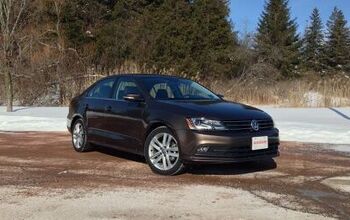
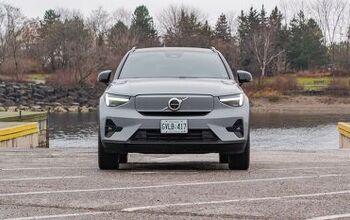
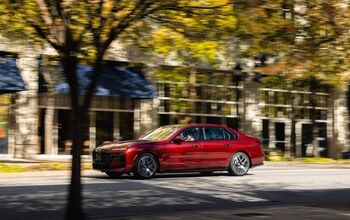

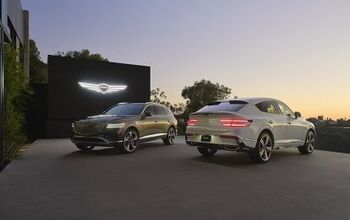
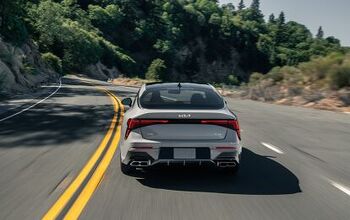
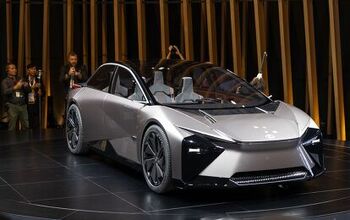
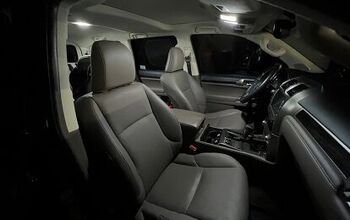

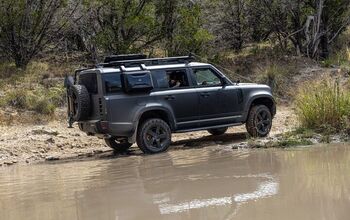
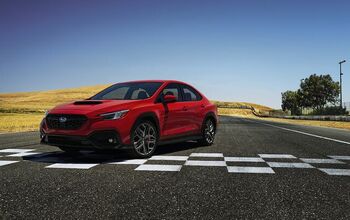
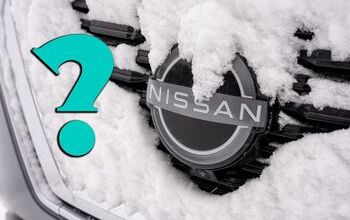
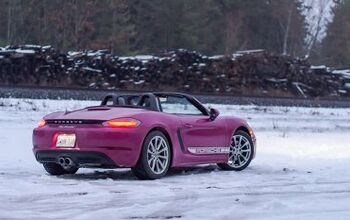
Comments
Join the conversation
Little if no future R&D is being put towards diesel engines. Battery technology will dominate the automotive landscape for the foreseeable future. All manufacturers build vehicles to fail as a business strategy. Some more than others. This will continue to be true with plug ins. Cosmetics aside, Toyota/Lexus has dominated the fuel efficient landscape for over a decade. Unfortunately there too many options and marketing propaganda to cloud many peoples decisions. Choices from best to worst. 1. Electric Plugin (If distance is not a factor) 2. Hybrid (If highway driving is somewhat limited) 3. Diesel (Purely for distance or too lazy to fuel in cold climates) 4. Gas (Will be phased out within the next decade)